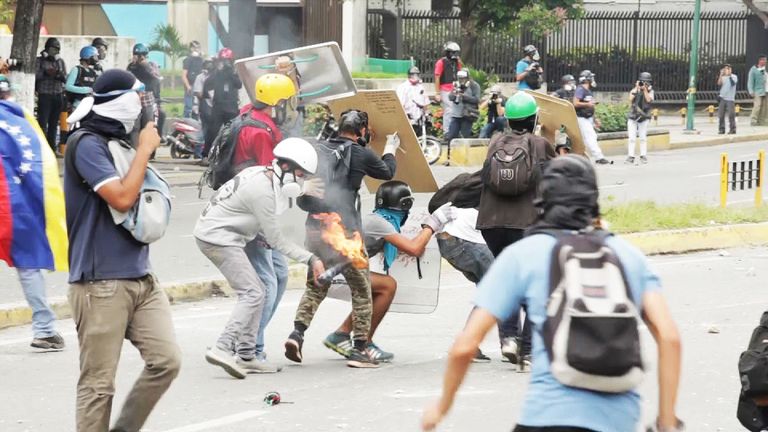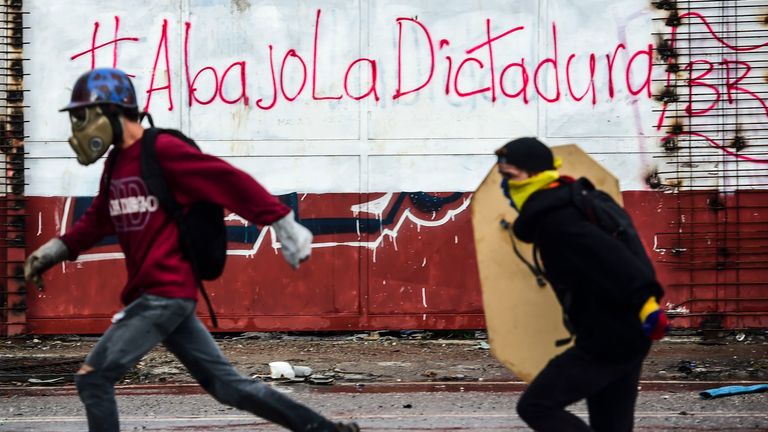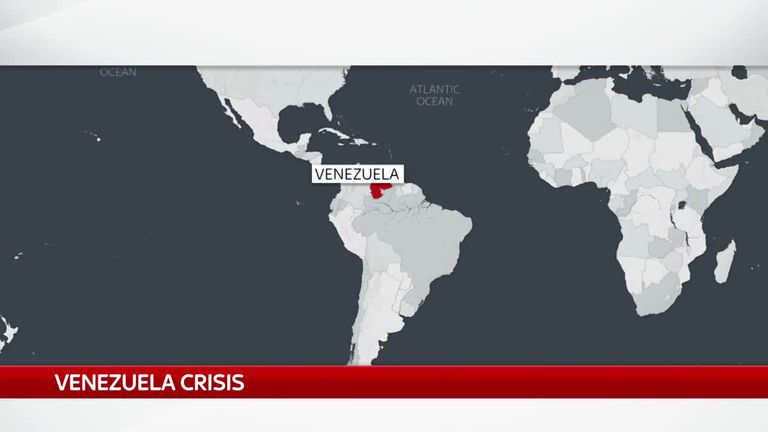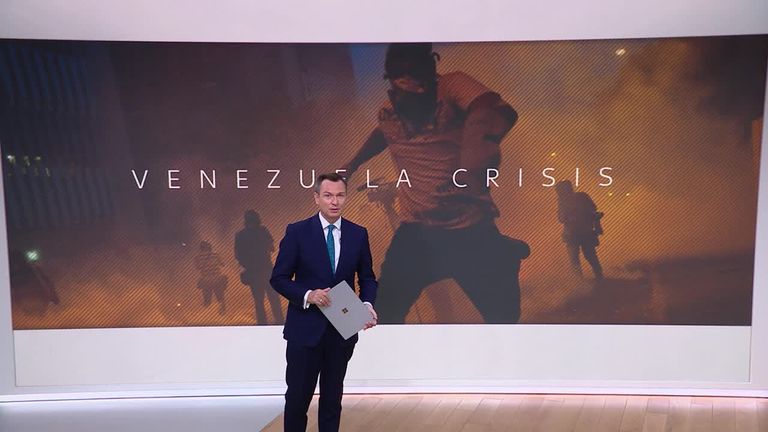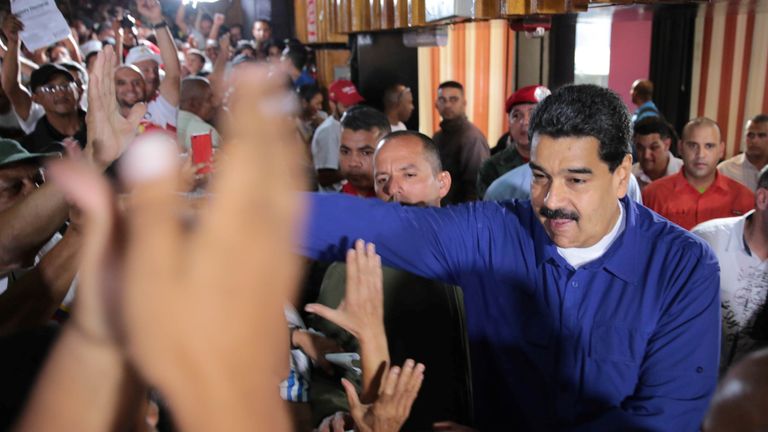Vote or lose your home: Venezuela's 'illegal' election
Stuart Ramsay describes the extraordinary lengths to which the Venezuelan government is going to try and legitimise the election.
Sunday 30 July 2017 17:14, UK
The vast barrios, the slums of Caracas, should be the heartland of support for a socialist government.
Traditionally they have been, but it is changing.
The streets teem with people. Venezuela's economic collapse is most keenly felt here. Everyone is poor on these streets, everyone.
::
The anti-government movement may have its roots in the middle classes, but it is here too. The barricades are up. Nightly they clash with the National Guard.
A lady stopped me in the street and told me her home had been attacked, tear gas fired towards her windows, because she and her neighbours were chanting anti-government slogans.
Activists claim the security forces are now targeting the homes of the opposition supporters to try and scare them off the streets.
But the anger at the government and its plans to rewrite the constitution with a new assembly are very real; so they take to the streets every day.
::
Across the city men and women, some in masks, some happy to be seen, express the same views: that the election is unconstitutional and will not be accepted.
"This is illegal," Juan Vieda, manning a barricade, told me.
"They want to force us. They want to force this constitution on us and we don't want it. This will be bad and this will be bad for them," he said.
Near the centre of Caracas, estates of social housing, adorned with images of Hugo Chavez who paid for them to be built, remain the bastions of government support. Publicly at least.
State employees get free housing and food subsidies to live on. They depend on it.
All are being bombarded with texts and calls telling them to vote or risk losing it all.
All radio stations must simultaneously play pro-election adverts at specific times set by Nicolas Maduro's government.
Government owned banks urge customers to vote. Managers of state-owned businesses must guarantee their staff turn out or lose their jobs.
For workers in the private sector, the self-employed and the huge numbers of unemployed the threats are meaningless.
Around 70% are against the election, called in order to create a new assembly more powerful than the relatively new existing parliament, which is anti-government.
The new assembly will change the constitution and effectively create a one-party state.
It is so unconstitutional that, led by the United States, most countries bordering or near to Venezuela have urged for the elections to be stopped, are threatening sanctions and have declared that the result will not be recognised.
The point is that in the opposition areas nobody will vote as no opposition politicians are standing.
They hope that a tiny turnout will expose the illegitimacy of the process.
The government, however, controls the election returns. There is no independent oversight in this election.
Many heroes of the opposition have emerged over the past few months, among them the Violinist of Caracas, Wuilly Arteaga, who played the national anthem on the front line as rubber bullets flew past him and tear gas enveloped him.
He told me that his new-found fame was irrelevant and that he was on the streets to show support for the opposition until change comes.
He played for Sky News.
Shortly after his last rendition he was arrested and beaten across the head with his violin. Friends say he has lost the hearing in his right ear.
